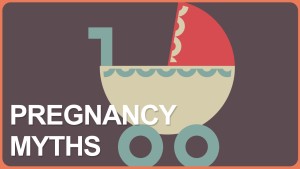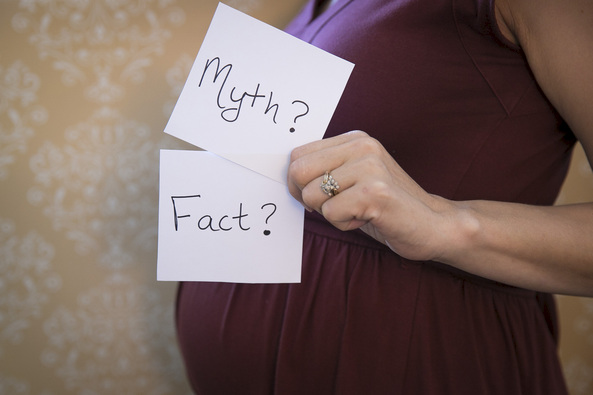As an expecting mom, you want to do everything right to ensure a safe and smooth delivery. On the other hand, advice flows incessantly from all corners on what should be done and what not. A lot of pregnancy myths are created through hearsay and need to be sifted out from the truth. We dispel common pregnancy myths and answer some of your frequently asked questions here.

Myth 1: You should be eating for two during pregnancy
Truth: It is true that your nutrient needs increases, but energy requirements only increase by about 300 calories per day for the second and third trimester of pregnancy, which is about equal to three chapattis or 1 big bowl of cooked rice! Remember, research has shown that too much weight gain is linked with complications at birth.
Myth 2: You only crave the foods your body needs during pregnancy
Truth: Cravings should not be the sole indicator of your nutritional needs as pregnant women can crave for foods of any type. During pregnancy women experience various types of cravings and aversions for different foods. Sometimes pregnant women even crave for non-nutrient materials like chalk, soil particles etc or may refuse to take a healthy food and may experience some sort of smell in a particular food. Hence pregnant mother should eat a variety of foods in sufficient quantities needed to meet her increased nutritional requirements under the guidance of a qualified nutrition professional.
Myth 3: Childbirth will be easier with less weight gain
Truth: During pregnancy, ideal weight gain of a woman with normal BMI should be 10-12 kgs. If a woman doesn’t gain adequate weight during pregnancy, there can be a risk of pre term or low birth weight of the infant which may lead to malnutrition and future complications for the baby.
Myth 4: Pregnant woman should not exercise.
Truth: Feeling tired and gaining weight is normal during pregnancy but exercise provides relief. “Being active and exercising 30 minutes daily reduces backache, constipation, bloating, swelling, prevents or treats gestational diabetes, increases your energy, improves mood and posture, promotes muscle tone, strength and endurance, and helps you sleep better. Regular activity also improves ability to cope with labour pain and makes it easier for you to get back in shape after giving birth. However, don’t exercise to lose weight while you are pregnant. Before starting any exercise regime, discuss with your Healthcare professional. Exercise under supervision of a qualified medical practitioner.
Myth 5: Your unborn baby will rely on the nutrient reserves in your body and get everything he needs, regardless of what you eat.
Truth: What you eat when you are pregnant makes a difference in the quality of nutrition your unborn baby receives during this important time of development. Research has found that your nutrition during pregnancy establishes the foundation for your unborn baby’s health for the rest of his life. You can give your unborn baby a strong, healthy start by taking care of your own health and nutrition. A nutritionist helps you understanding which key nutrients are most important can help you make good choices for you and your developing baby
